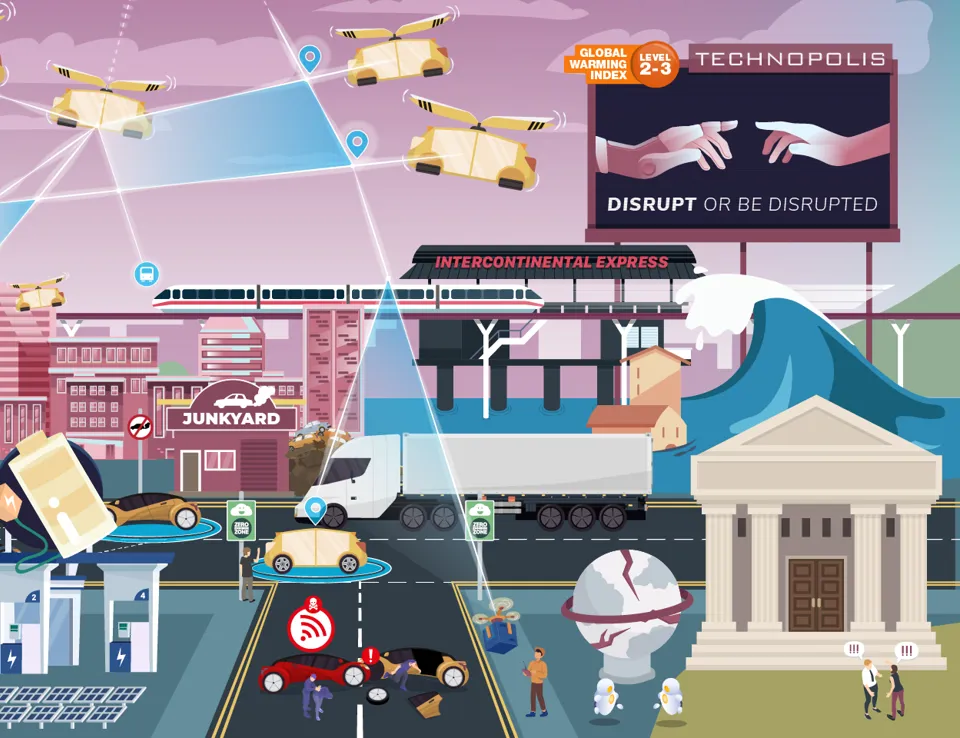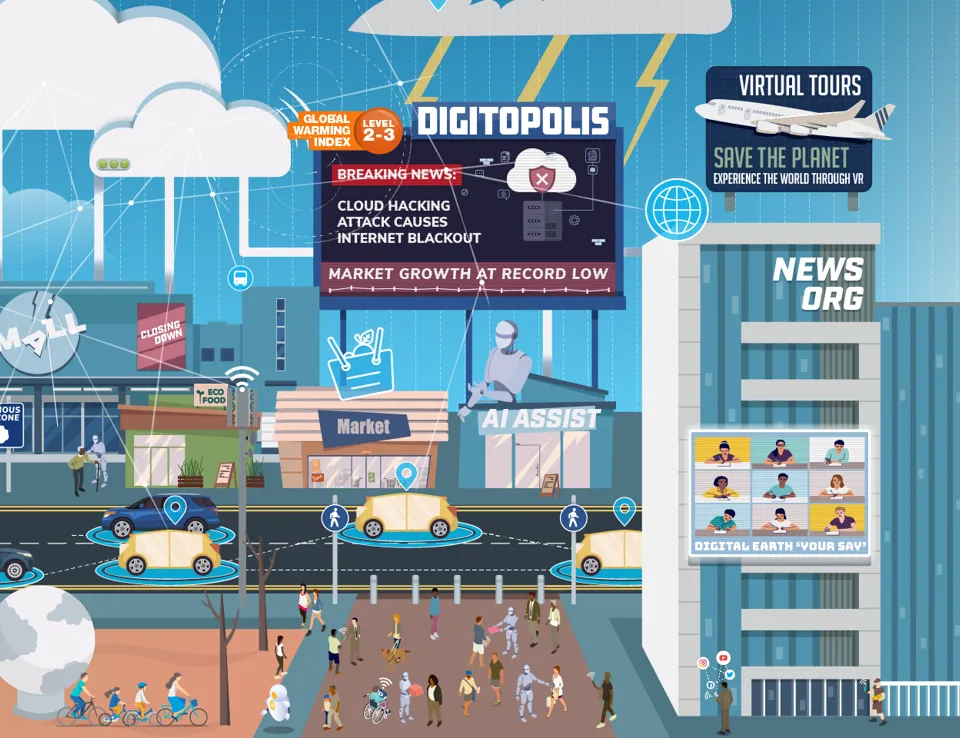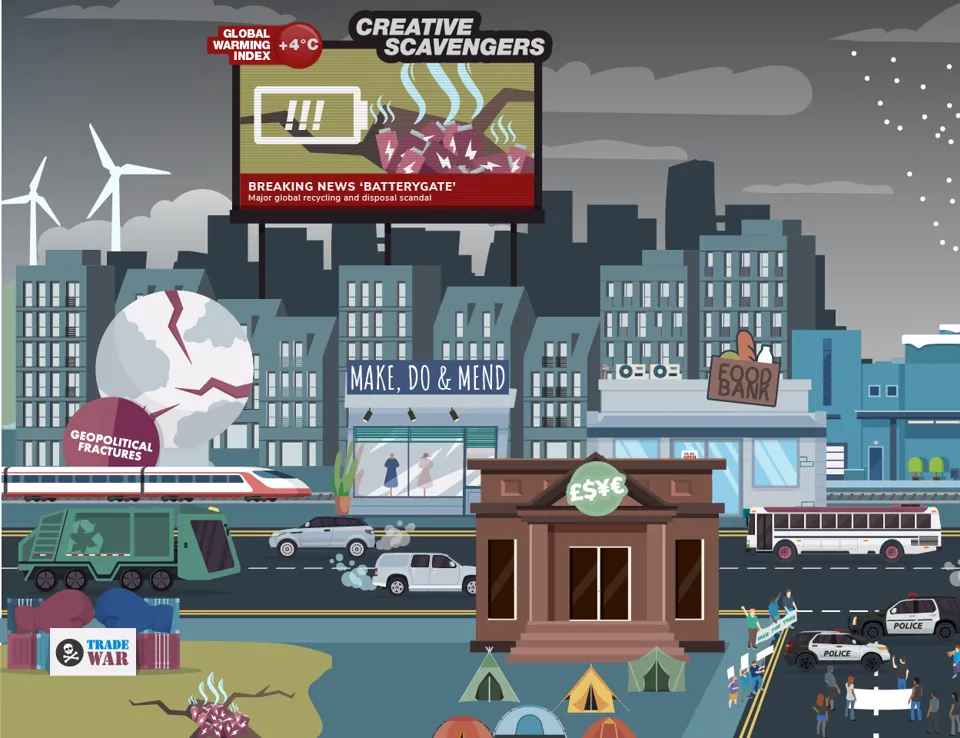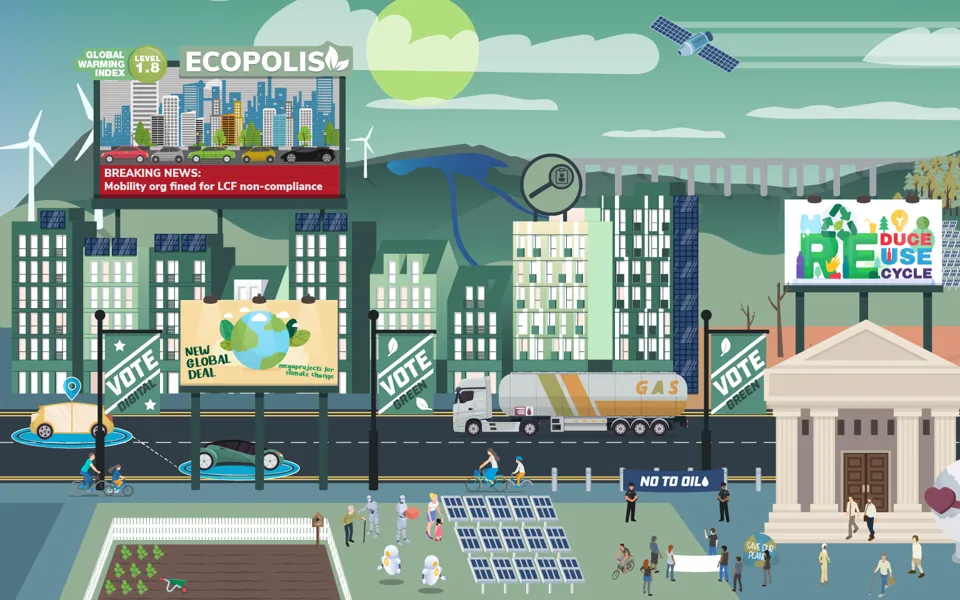
Why 'business as usual' now risks failure in future
01 Jul 2022
Why is scenario planning such a valuable strategic tool when no-one can predict the future? Why should I allocate expenditure on something that might never happen?
“Many strategy consultancies like to believe that studies predicting what the industry will definitively look like in 10-15+ years are valuable for clients,” says Derek Schlonsky, Ricardo Strategic Consulting’s Global President. “This is an archaic position given the technological changes that have occurred in the transportation space over the past decade, are happening now and are expected to continue.
“The reality is that the term ‘predict’ is obsolete in our current environment of rapid change and technological innovation. Almost as soon as a prediction is made, it can become obsolete with the macro and micro variables impacting the transportation space. Instead, our scenario planning capability helps identify ‘signposts’ that are occurring in real time and enables a business to anticipate hidden weaknesses and inflexibilities to create contingency plans that can address whatever reality presents itself for their businesses.
“It is a proven tool to evaluate gaps, risk areas and strengths against which actions such as mitigation or reinforcement can be taken. We find that our C-suite executive clientele can utilise the Ricardo scenario planning product to evaluate their current state given these signposts, then pivot their businesses to incorporate these analyses of past trends and current realities to develop future strategy.”
The only certainty is uncertainty
“The answer to the question about why allocate expenditure on something that might never happen,” explains Angela Johnson, Vice-President of Ricardo Strategic Consulting, “is that our world now has too many disruptive forces and ever faster change. You cannot simply extrapolate as conventional forecasting does not take into account these uncertainties.
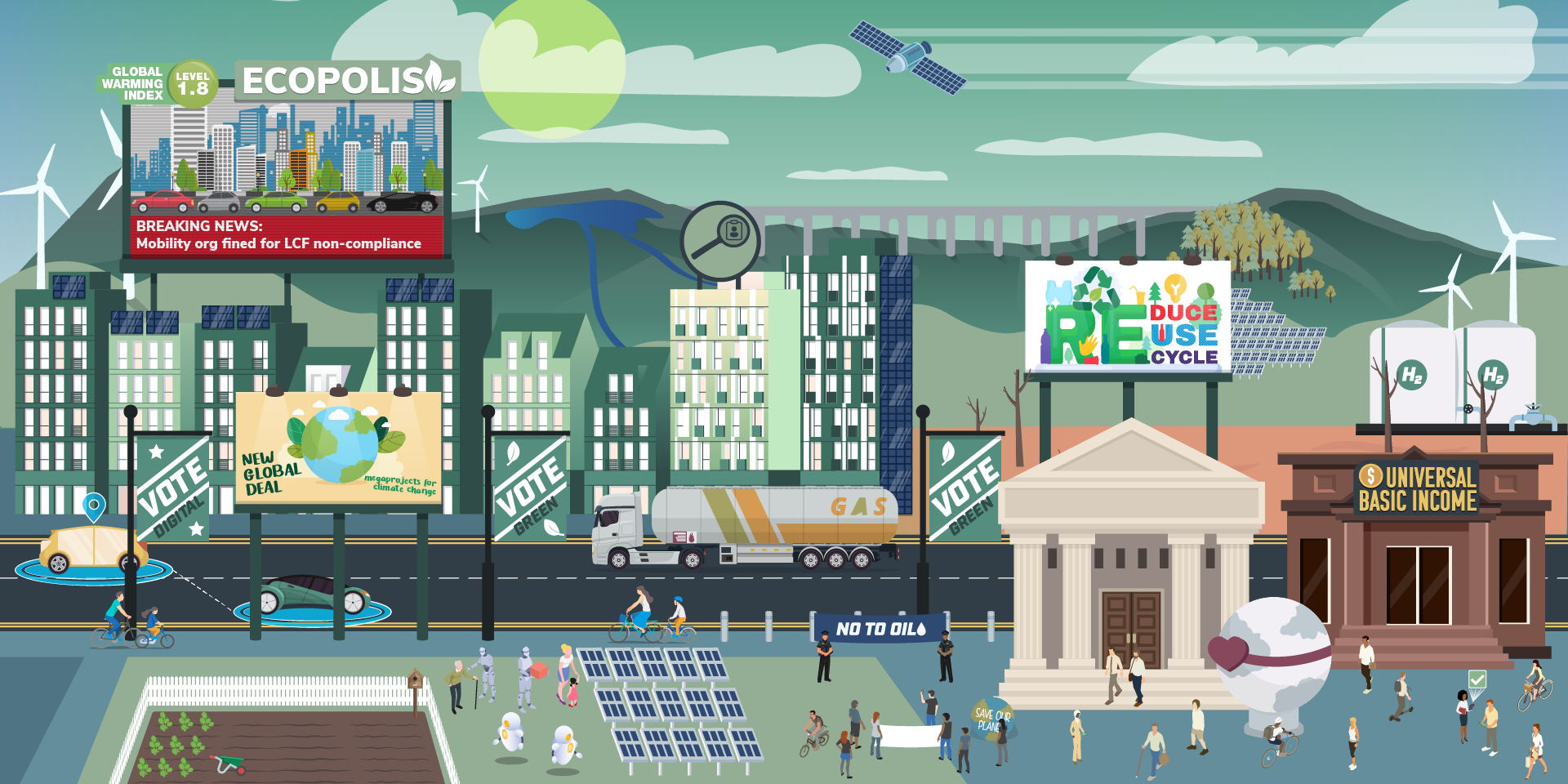
“That’s proven by the fact that some of the upheavals our world is experiencing now were included as possible outcomes in the scenarios developed by Ricardo just two or three years ago.”
Ricardo’s unique approach to scenario planning combines unrivalled strategic insight with more than 100 years of trusted engineering capability.
“We are careful not to put too much weight on things we might consider the most implausible. But they can’t be dismissed. After all, we’re emerging from a pandemic and have conflict in Europe. What might a wild card be in a new scenario created today: nuclear war?”
Interpreting the world as we don't yet know it
Ricardo’s deep strategic expertise equips business leaders to navigate the complexities of the future. Our world-class technical design, engineering and automotive experience supports planning for implementation.
To help achieve both these aims, Ricardo’s experts have created four scenarios from the perspective of the world in 2035.
Introducing Ecopolis
‘Ecopolis’, presents a major social change: widespread use of AI and automation have driven the adoption of a Universal Basic Income, helping to produce a more cohesive and cooperative world.
Mobility and oil companies face a stark choice, though: ‘Decarbonise or be penalised’.
“In this possible future,” explains Schlonsky, “compliance is key as legislative and financial frameworks are tightened. Coordinated international efforts – from policy setting to what we’ve called the ‘New Global Deal’, a series of state-funded megaprojects – have staved off the worst impacts of climate change. This is our only scenario where the world is on track to remain within 1.5oC of warming.
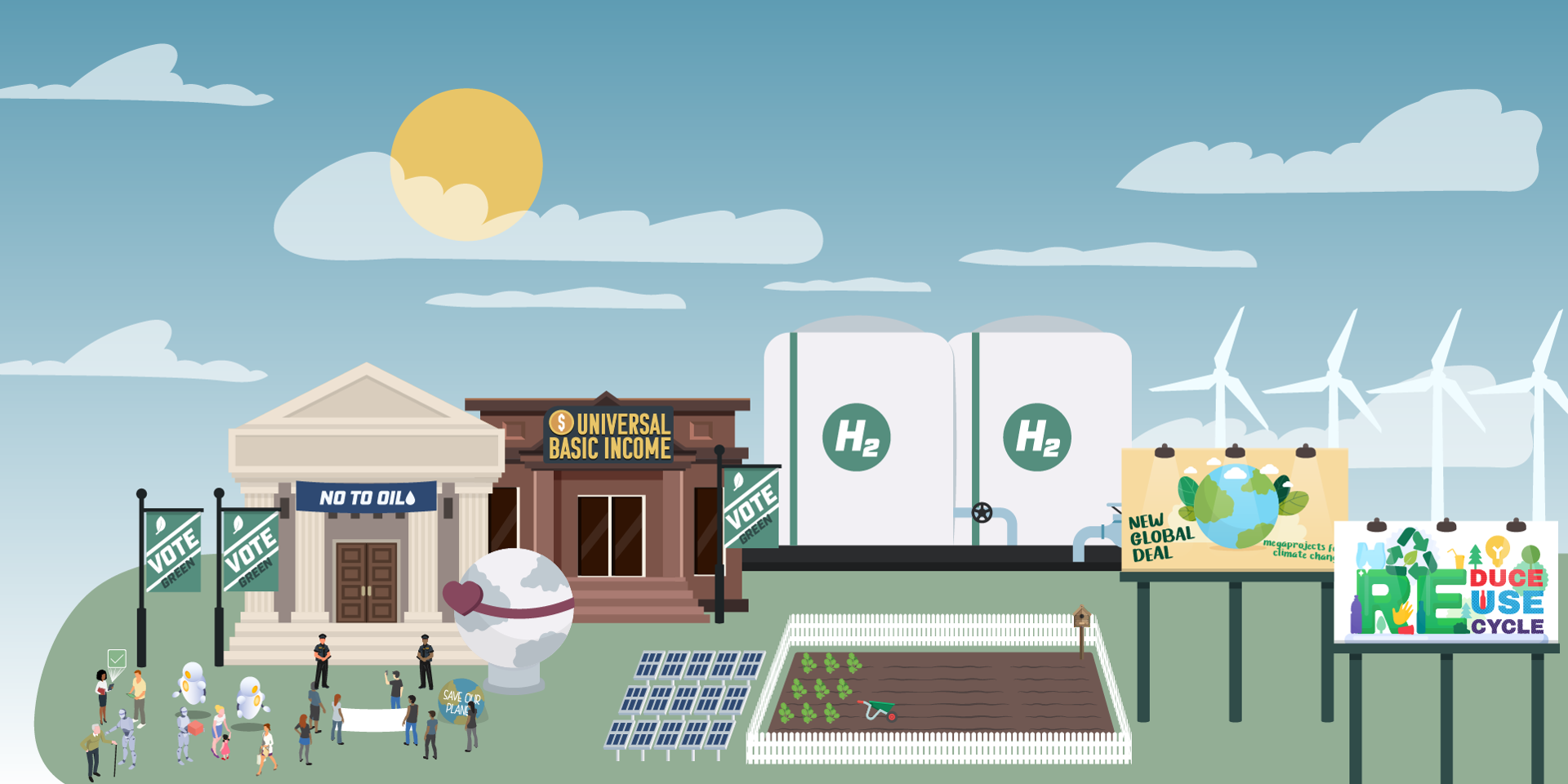
“However, regulation also has the potential to suffocate innovation: mandatory life cycle footprints for all goods and services have indirectly increased battery and electronics costs while data harvesting is rigorously restricted.
“In ‘Ecopolis’, there is recognition by governments that a range of propulsion and energy storage solutions are required – broadly, fluids for large vehicles and electrons for small vehicles.”
If some of the features of ‘Ecopolis’ sound familiar, that’s because they have already become reality in the short time since the scenario was created. “In June, the European Parliament backed reforms to the European Union (EU) carbon market to help cut emissions faster,” notes Schlonsky.
“Earlier this year we saw new EU rules requiring batteries to carry a label reflecting their carbon footprint so their environmental impact is more transparent.
“And more than 70 countries, including the biggest polluters, have set a net-zero target covering about 76 per cent of global emissions. More than 1,200 companies have put in place science-based targets in line with net zero while more than 1,000 cities, 1,000 educational institutions and 400 financial institutions have also pledged to take rigorous, immediate action to halve global emissions by 2030.”
Monitoring signposts to our future
‘Ecopolis’ is one of four plausible alternative futures developed by Ricardo. In each scenario our experts drill down into the engineering detail to give a detailed and informed view of the challenges that may lie ahead.
“In reality, the future is likely to be a combination of elements from each of the four scenarios,” explains Johnson. “They are not mutually exclusive.
“Once scenarios have been created, customers can monitor key signposts to gauge the direction the world is moving. For example, the Russia-Ukraine war is a signpost that aligns to the ‘Creative Scavengers’ scenario where there are geopolitical fractures. Or changes to the legislative environment around product life cycle footprints might take us in the direction of ‘Ecopolis’.
“The pace of disruption and change in today’s world is dizzying. Our long-term future cannot be extrapolated from past trends or cycles.
“The challenge for customers is often how to deal with the implications of each of the scenarios. One of our techniques is to place engineers into those worlds; this can help a business move from planning its strategy to planning for implementation.”
Ricardo’s experts will offer further insight around strategic planning for an uncertain future. Register to learn more from Ricardo’s experts that will help answer two key questions:
-
Is your strategy robust to the risks and challenges that future scenarios will bring?
-
Are you equipped to deliver against that strategy?
If your strategy is robust against our scenarios, then it will very likely be robust against whatever the future actually brings.




 Follow Ricardo plc for regular updates
Follow Ricardo plc for regular updates


